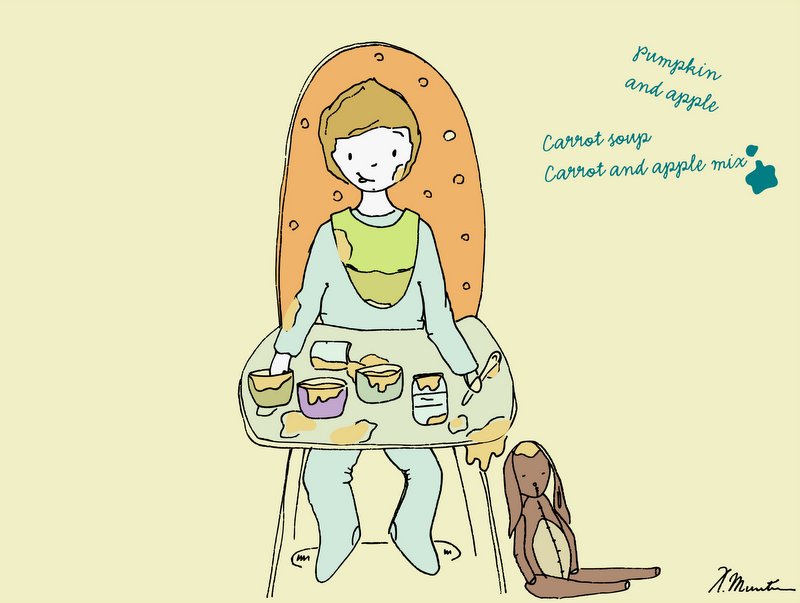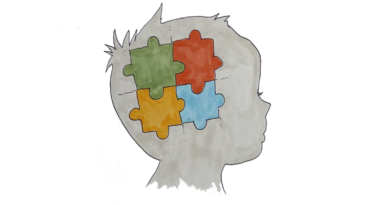Starting Solids
It is now generally accepted that a baby should be breastfed exclusively for about the first half-year of his life. What is less well known, however, is that the process of moving from a milk diet to a diet of solids is a gradual one. Some babies are ready for solids already at five months of age and ravenously eat up everything that is presented to them. Others are not ready even to consider trying solids until well past the age of six months and thereafter thrive on a milk diet supplemented by an occasional morsel of food for a long while. Most babies fall somewhere in between these two extremes. When is the right time to start your baby on solids? How quickly will he move from supplementing his milk diet with solids, to supplementing his solids diet with milk? There are no definitive answers to these questions because they depend upon the individual rate of development of your child.
Milk production stays the same (more or less) after being established in the first few weeks after childbirth. Breastfed babies do not need ever increasing amounts of milk because their intestines become increasingly more efficient and both their metabolisms and rates of growth slow so the milk that they ingest is used more effectively. Occasionally your child will go through a “growth spurt” (typically at around 3 weeks, 6 weeks, and 3 months) and have a temporary need for more milk that will only be satisfied by nursing seemingly “all the time” over a period of about three days or so until he settles down to breastfeeding the same amount as before. Otherwise his milk intake is essentially unchanged over the first six months or so of life. After this period, the baby will have a need for more caloric intake; a need which will be met by adding food to his diet. By this time, his immune system and his physical skills will have developed to such a degree that he will be able to chew, swallow and digest solids.
At the beginning of his life, your baby’s immune system is very immature. It depends almost entirely upon the immunological factors received in your breastmilk to function. The development of his immune system depends to a very large part upon the establishment of a good intestinal flora. The colonization of the digestive tract is started during birth (caesarean section babies have a deficit right at the beginning, but in times of medical emergency this cannot be helped) and is optimally completed through breastfeeding. Breastfeeding provides a source of “good” colonizing bacteria along with the nourishment that helps them to thrive. It is this intestinal flora that helps to seal your child’s intestinal walls against food allergens that would otherwise pass directly into his bloodstream; and which will produce some of the enzymes that your child needs to digest many of the foods that he eats. Children whose digestive tracts are not yet sufficiently matured to protect them against allergies will usually start on solids a little later than other children. For this reason, it is important to offer suitable foods regularly to babies above the age of six months but to leave the decision of when and how much to eat of these foods up to the child.
At the same time as his digestive tract and immune system is developing, the child is also developing physical skills that he will use when eating. The ability to sit up develops in most babies at around six months; the tongue thrust reflex, which pushes out all solids that somehow find their way into the mouth (an anti-choking reflex that all babies are born with) develops at around the same time; and use of the so-called “pincer grip” (grasping an object between the thumb and forefinger) follows shortly thereafter. Indeed, by the age of about 6-8 months, most babies are physically able to pick things up, get them into their mouths, chew and swallow them without choking and have their digestive systems process the foods for them safely.
Independent of when your child has started on solids and how quickly he has taken to eating them, he will have a continuing need for breastmilk until the age of at least one year. Up until that point, the diet is usually predominantly milk supplemented by food and afterward will change to be a diet of food supplemented by milk. Ideally, your child will be able to wean himself fully when he is ready. The La Leche League, World Health Organization, UNICEF and many other official bodies recommend breastfeeding for “two years and beyond,” but the decision as to how long you and your child will share in the loving act of breastfeeding will ultimately be taken by the two of you on your own.
By Bethany Brupbacher
Beth has been an LLL leader since 2008. She runs monthly meetings in Meilen. Go to lalecheleague.ch for more information.
Illustration by Laura Munteanu
Laura has studied Journalism and Advertising, and has worked as a journalist and an illustrator. She has illustrated for magazines, websites, charity and various campaigns. Laura lives in Zurich with her husband and 5 year old daughter.




